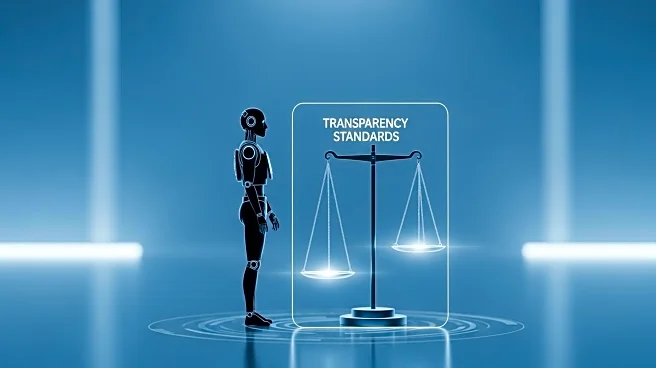What's Happening?
California Governor Gavin Newsom has signed SB 53, a pioneering bill that establishes new transparency requirements for large AI companies. The legislation mandates that AI labs such as OpenAI, Anthropic, Meta, and Google DeepMind disclose their safety protocols and provides whistleblower protections for employees. Additionally, the bill creates a mechanism for reporting potential critical safety incidents to California’s Office of Emergency Services. This includes incidents related to crimes committed without human oversight, such as cyberattacks, and deceptive behavior by AI models. The bill has received mixed reactions from the AI industry, with some companies like Anthropic endorsing it, while others like Meta and OpenAI have lobbied against it.
Why It's Important?
The signing of SB 53 marks a significant step in AI regulation, as it sets a precedent for state-level oversight of AI technologies. This move could influence other states to adopt similar measures, potentially leading to a more standardized approach to AI safety across the U.S. The bill aims to balance innovation with public safety, addressing concerns about the unregulated advancement of AI technologies. By requiring transparency and accountability, the legislation seeks to build public trust in AI systems. However, the tech industry warns that state-level regulations could create a fragmented regulatory environment, potentially stifling innovation.
What's Next?
Following the enactment of SB 53, other states may look to California as a model for AI regulation. In New York, a similar bill is awaiting the governor's decision. The ongoing debate over AI regulation is likely to continue, with tech companies advocating for a more unified federal approach to avoid a patchwork of state laws. Governor Newsom is also considering another bill, SB 243, which would regulate AI companion chatbots, further indicating California's proactive stance on AI governance.










